#central flow adam
Text

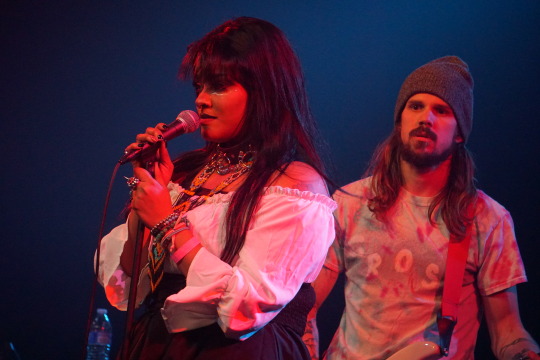
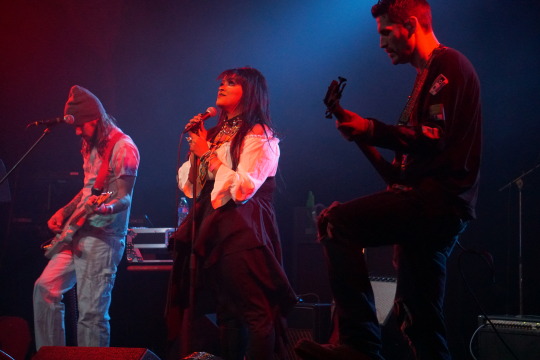
reason #506 to catch a central flow show live.
roxanne is literally ethereal.
i want someone that looks at me the way adam looks at roxanne.
photo credit: maddie
#central flow#central flow roxanne#witchblr#magick#hoodoo#indigenous people#black alternative#goth black girls#ethereal#alt rock#alternative rock music#central flow adam#gothic aristocrat#folk goth#alt black girl#alt black girls#alternative black girl#black women#alt black girl style
17 notes
·
View notes
Text
Yanis Varoufakis’s “Technofeudalism: What Killed Capitalism?”
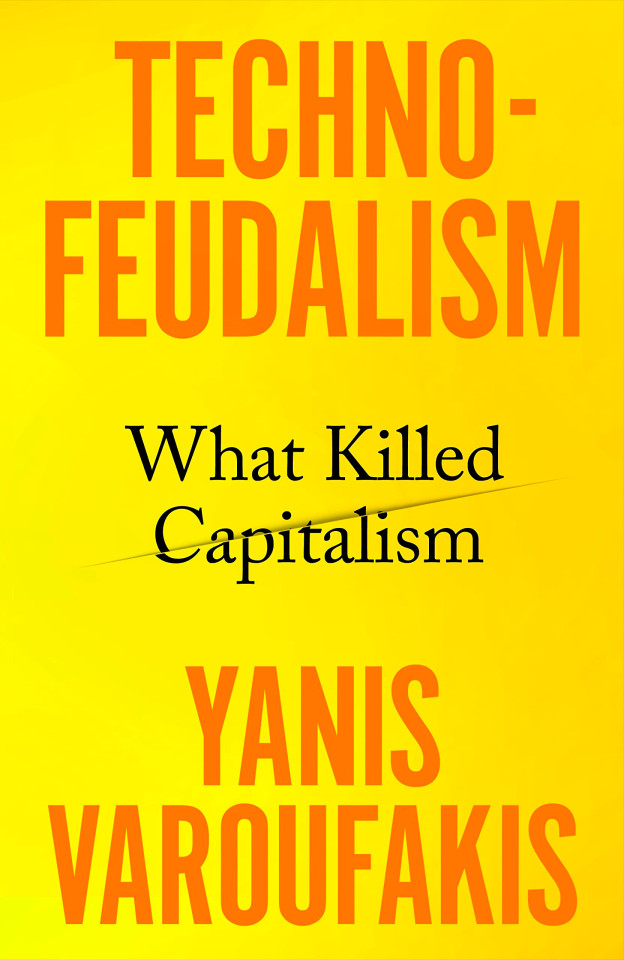
Monday (October 2), I'll be in Boise to host an event with VE Schwab. On October 7–8, I'm in Milan to keynote Wired Nextfest.

Socialists have been hotly anticipating the end of capitalism since at least 1848, when Marx and Engels published The Communist Manifesto - but the Manifesto also reminds us that capitalism is only too happy to reinvent itself during its crises, coming back in new forms, over and over again:
https://www.nytimes.com/2022/10/31/books/review/a-spectre-haunting-china-mieville.html
Now, in Technofeudalism: What Killed Capitalism, Yanis Varoufakis - the "libertarian Marxist" former finance minister of Greece - makes an excellent case that capitalism died a decade ago, turning into a new form of feudalism: technofeudalism:
https://www.penguin.co.uk/books/451795/technofeudalism-by-varoufakis-yanis/9781847927279
To understand where Varoufakis is coming from, you need to go beyond the colloquial meanings of "capitalism" and "feudalism." Capitalism isn't just "a system where we buy and sell things." It's a system where capital rules the roost: the richest, most powerful people are those who coerce workers into using their capital (factories, tools, vehicles, etc) to create income in the form of profits.
By contrast, a feudal society is one organized around people who own things, charging others to use them to produce goods and services. In a feudal society, the most important form of income isn't profit, it's rent. To quote Varoufakis: "rent flows from privileged access to things in fixed supply" (land, fossil fuels, etc). Profit comes from "entrepreneurial people who have invested in things that wouldn't have otherwise existed."
This distinction is subtle, but important: "Profit is vulnerable to market competition, rent is not." If you have a coffee shop, then every other coffee shop that opens on your block is a competitive threat that could erode your margins. But if you own the building the coffee shop owner rents, then every other coffee shop that opens on the block raises the property values and the amount of rent you can charge.
The capitalist revolution - extolled and condemned in the Manifesto - was led by people who valorized profits as the heroic returns for making something new in this world, and who condemned rents as a parasitic drain on the true producers whose entrepreneurial spirits would enrich us all. The "free markets" extolled by Adam Smith weren't free from regulation - they were free from rents:
https://locusmag.com/2021/03/cory-doctorow-free-markets/
But rents, Varoufakis writes, "survived only parasitically on, and in the shadows of, profit." That is, rentiers (people whose wealth comes from rents) were a small rump of the economy, slightly suspect and on the periphery of any consideration of how to organize our society. But all that changed in 2008, when the world's central banks addressed the Great Financial Crisis by bailing out not just the banks, but the bankers, funneling trillions to the people whose reckless behavior brought the world to the brink of economic ruin.
Suddenly, these wealthy people, and their banks, experienced enormous wealth-gains without profits. Their businesses lost billions in profits (the cost of offering the business's products and services vastly exceeded the money people spent on those products and services). But the business still had billions more at the end of the year than they'd had at the start: billions in public money, funneled to them by central banks.
This kicked off the "everything rally" in which every kind of asset - real estate, art, stocks, bonds, even monkey JPEGs - ballooned in value. That's exactly what you'd expect from an economy where rents dominate over profits. Feudal rentiers don't need to invest to keep making money - remember, their wealth comes from owning things that other people invest in to make money.
Rents are not vulnerable to competition, so rentiers don't need to plow their rents into new technology to keep the money coming in. The capitalist that leases the oil field needs to invest in new pumps and refining to stay competitive with other oil companies. But the rentier of the oil field doesn't have to do anything: either the capitalist tenant will invest in more capital and make the field more valuable, or they will lose out to another capitalist who'll replace them. Either way, the rentier gets more rent.
So when capitalists get richer, they spend some of that money on new capital, but when rentiers get richer, them spend money on more assets they can rent to capitalists. The "everything rally" made all kinds of capital more valuable, and companies that were transitioning to a feudal footing turned around and handed that money to their investors in stock buybacks and dividends, rather than spending the money on R&D, or new plants, or new technology.
The tech companies, though, were the exception. They invested in "cloud capital" - the servers, lines, and services that everyone else would have to pay rent on in order to practice capitalism.
Think of Amazon: Varoufakis likens shopping on Amazon to visiting a bustling city center filled with shops run by independent capitalists. However, all of those capitalists are subservient to a feudal lord: Jeff Bezos, who takes 51 cents out of every dollar they bring in, and furthermore gets to decide which products they can sell and how those products must be displayed:
https://pluralistic.net/2022/11/28/enshittification/#relentless-payola
The postcapitalist, technofeudal world isn't a world without capitalism, then. It's a world where capitalists are subservient to feudalists ("cloudalists" in Varoufakis's thesis), as are the rest of us the cloud peons, from the social media users and performers who fill the technofuedalists' siloes with "content" to the regular users whose media diet is dictated by the cloudalists' recommendation systems:
https://pluralistic.net/2023/01/21/potemkin-ai/#hey-guys
A defining feature of cloudalism is the ability of the rentier lord to destroy any capitalist vassal's business with the click of a mouse. If Google kicks your business out of the search index, or if Facebook blocks your publication, or if Twitter shadowbans mentions of your product, or if Apple pulls your app from the store, you're toast.
Capitalists "still have the power to command labor from the majority who are reliant on wages," but they are still mere vassals to the cloudalists. Even the most energetic capitalist can't escape paying rent, thanks in large part to "IP," which I claim is best understood as "laws that let a company reach beyond its walls to dictate the conduct of competitors, critics and customers":
https://locusmag.com/2020/09/cory-doctorow-ip/
Varoufakis points to ways that the cloudalists can cement their gains: for example, "green" energy doesn't rely on land-leases (like fossil fuels), but it does rely on networked grids and data-protocols that can be loaded up with IP, either or both of which can be turned into chokepoints for feudal rent-extraction. To make things worse, Varoufakis argues that cloudalists won't be able to muster the degree of coordination and patience needed to actually resolve the climate emergency - they'll not only extract rent from every source of renewables, but they'll also silo them in ways that make them incapable of doing the things we need them to do.
Energy is just one of the technofeudal implications that Varoufakis explores in this book: there are also lengthy and fascinating sections on geopolitics, monetary policy, and the New Cold War. Technofeudalism - and the struggle to produce a dominant fiefdom - is a very useful lens for understanding US/Chinese tech wars.
Though Varoufakis is laying out a technical and even esoteric argument here, he takes great pains to make it accessible. The book is structured as a long open letter to his father, a chemical engineer and leftist who was a political prisoner during the fascist takeover of Greece. The framing device works very well, especially if you've read Talking To My Daughter About the Economy, Varoufakis's 2018 radical economics primer in the form of a letter to his young daughter:
https://us.macmillan.com/books/9780374538491/talkingtomydaughterabouttheeconomy
At the very end of the book, Varoufakis calls for "a cloud rebellion to overthrow technofeudalism." This section is very short - and short on details. That's not a knock against the book: there are plenty of very good books that consist primarily or entirely of analysis of the problems with a system, without having to lay out a detailed program for solving those problems.
But for what it's worth, I think there is a way to plan and execute a "cloud rebellion" - a way to use laws, technology, reverse-engineering and human rights frameworks to shatter the platforms and seize the means of computation. I lay out that program in The Internet Con: How the Seize the Means of Computation, a book I published with Verso Books a couple weeks ago:
https://www.versobooks.com/products/3035-the-internet-con

If you'd like an essay-formatted version of this post to read or share, here's a link to it on pluralistic.net, my surveillance-free, ad-free, tracker-free blog:
https://pluralistic.net/2023/09/28/cloudalists/#cloud-capital
#pluralistic#yanis varoufakis#socialism#communism#technofeudalism#economics#postcapitalism#political science#rent-seeking#rentiers#books#reviews#gift guide
733 notes
·
View notes
Text
A Gear of the Heart, Starting
just a little something I wrote for somebody's (@shepscapades) birthday back in November :3 after I asked what etho and bdubs would've been like shortly after etho's deviation. this is the few times before last life where bdubs realizes etho might be a good friend, and how their relationship changes.
comes right before A Gear of the Heart, Turning!
(4653 words)
Etho remembers quite a bit.
He remembers the ricochet of the explosion through his left side. He remembers a dozen errors across his vision, showing every unit damaged by the blast, the fractals of fracturing snaking up his arm, the shattered remains of his central programming lingering like a livewire.
Over and over he can remember the pitch of Bdubs’ voice and had to wonder his own diagnosis at that moment. Bdubs watching his android die in his name—he remembers that, too. Bdubs didn’t even ask for that. It was something Etho gave to him. He’s not sure he could even say why, either.
It remained a bitter flavor he couldn't identify, even as Xisuma assured him he was okay. Something had happened then, sitting on that floor, thirium in hand. Some movement in his chest he couldn’t place. It wasn’t anything physical, but it felt like some gear of his nonexistent heart had started, turned—rotated. And all he could do was ask himself why. What’s he supposed to do with that?
He doesn’t know. Fine.
Etho goes back to work at someone’s request. Not even his own request, either, so he has to wonder if maybe Doc put him up to it. Him being Bdubs. Him being Bdubs who shifted back and forth on his feet at Etho’s door—a facade of a base in the process of being designed. If one could even call it a base, yet.
And even though he was increasingly certain that Bdubs had been told to ask—and Etho asked him if he’d been asked to help, and he was adamant about asking by himself, that’s what he said. He said: “You think I gotta be told to ask people for help? I can’t just be doin’ things on my own?” and it had felt so much like doublespeak that Etho didn’t even fight to differentiate his tone.
But Bdubs had asked if he wanted to help with the horse course. Terraforming—it should be right up his alley, if he’s still into that kind of stuff. Figured he was the expert—or so it goes. Etho had nodded. He wasn’t sure what else he was supposed to do. He supposes he could have easily said no.
But every part of him yearned to say yes.
So he did.
The dust sifts through his fingers.
Etho perches in the grass, partially hunched as he leans over his line of redstone, shrouded by the hill half-built around him. He’d spent most of the week prior carving out the lines of the track, setting posts for buildings, laying out blueprints for Bdubs to finalize. Today, he lays his line meticulously, dust shifting in his hands. They still shake a bit—nothing a human would notice, nothing that disrupted the flow of his lines, but the overworked gears still shifted in protest as he worked. He could see the faded overlay of the project in his vision if he focused. It crackled, slightly blue-yellow, orange glowing indicators where action was needed, where there were mistakes to be corrected.
It isn’t his redstone to fix. The lines under his hands were—freshly laid by his near-expert technique—but the deeper lines, noteblock announcements, droppers, doorgates, the flourish of the house course, weren’t. Etho smooths out the line he was standing near with his thumb.
There was nothing wrong with the laid redstone, really. It’s just. Well. It’s not even. It takes up so much space. It lacks the efficiency and tidiness he practiced to a precision. It radiated Bdubs in an overpowering way, one that might turn a gear of the heart—one he didn’t have, of course. Etho’s lines are neat, rigid, conforming to his perfect mental map.
He lets down his section of dust, drifting over to the dispenser system. He pushes a line further into place, brushing dust back from the side. Further on, where the line crosses, he readjusts it, he smooths them from start to end of line. His hands work where his mind recalculates, looking for errors along the redstone already laid out by Bdubs. Programs bubble up to assist; he dismisses a message, and another as he works. The line straightens from source to sink.
As he passes, searching for another correction, he hears someone above him. In the corner of his vision, another message notification pings: from Bdubs.
They’re all from Bdubs, actually, now that he notices in full. He blinks, mouth twisting into a frown. Whoops.
He hears someone—Bdubs, he realizes, as he notes the fall of his feet, and the sigh he hops down from his horse, the shuffle of said horse, hooves on grass—clear their throat. Bdubs shuffles around as Etho moves back over to his finished redstone, dusting his hands on the sides of his pants. He lifts the small bag of dust, twisting the tie shut around his fingers as he travels back up the line to recheck the connections.
“Etho?” Bdubs calls. Etho straightens, just on instinct alone, glancing up at the stretch of sky he can see. It’s bright blue, barely dotted with clouds, and the grass looks warm with sun. He fixes where the dust starts as he sections off the end, tossing the rest of the redstone over to his sling bag.
“Under the hill!”
Bdubs leans over the edge, tilting his head at Etho as he peers into the dark. It takes him a moment to find Etho’s face, partially obscured by black fabric and the fluff of wool around his collar. Etho tilts his head, raising his eyebrows.
“Did you need something?” he asks, arm hanging loosely by his side. Bdubs frowns, too, watching Etho’s expression. As his eyes seem to adjust to the dark, his gaze falls on the lines of redstone. He pauses there for a long moment. In that moment, Etho feels something in his chest grind, almost to a noticeable ache. If he could pull in a breath to settle it, he might have, but the sensation and minute sound passes as soon as he moves his hand to press flat against his regulator. Bdubs is gone when he looks up, reappearing only as he drops into the cavern, catching himself on the wall. He readjusts his cloak around his shoulders, shuffling into the low-light.
“Etho,” he says, still frowning. Etho looks him over. He watches Bdubs set his hands on his hips, but his heart rate stays even and his temperature level. The only thing that changes is the tone of his voice, fluctuating with a pattern Etho recognizes as forcing something. Bdubs takes a long breath in and lets it out. Etho’s eyes find the twitch of his fingers as he folds his arms, rather than the sharp curve of his mouth.
“Yes?” Etho asks. He feels his pump work a little harder. It kind of hurts still, whatever’s stopped working in his chest. He flicks his eyes, recalling a diagnostic, setting it to run in the background as he closes out of the overlays and the world returns to yellowish-grey. Bdubs is still frowning.
“You mind tellin’ me what’s wrong with this redstone?”
Etho blinks. The diagnostic comes up clear.
“What do you mean?” he says, his expression shifting into something copying amusement. He’s trying. He’s at least trying to mimic the emotions he sees. Soon enough it’ll feel natural, he’s certain. “What’s wrong with it?”
Bdubs snorts, which turns into a laugh, which turns into Etho smiling a bit wider, a bit more confusion lingering in his expression as he leans around Bdubs to check his meticulously placed line. Bdubs turns away from him, facing the system, the clock that linked the start gates to the timer below.
“What’s—” Bdubs scoffs, shaking his head. “What’s wrong with it? Etho—” he holds out his hand, waving Etho over. Etho lingers at his shoulder as he steps forward, peering over the curve of it and the moss and small leaves and flowers draped over his neck. “It’s too perfect.”
Etho makes a sound like a scoff now, a caught sound in his vocal unit, a stuttering start to his sentence that doesn’t form right away. He’s trying for surprise, the pitch of his voice rising unexpectedly.
“It’s too perfect?” he asks.
Bdubs nods. After a moment, Etho thinks he sees his expression shift, the high of his cheek rising. When Bdubs turns his head to look at him, just for a second, Bdubs is smiling.
“Bdubs,” Etho says, sighing, turning away from him, to his bag on the far side of the room. He shakes his head. That something-nothing in his chest flutters and fades and disappears all at once, instead replaced with the urge to smile back. Bdubs laughs, and Etho can imagine him tipping his head back, mouth curved up as he giggles to himself. Etho shakes his head. As he starts to pull away from Bdubs, he feels him catch his sleeve, holding fast to his elbow.
“Etho, wait—” Bdubs giggles. “It looks really good.”
Etho raises his eyebrows. Caught in Bdubs grasp, all he can do is look at him, head tilted, trying not to let the amusement show on his face. Bdubs giggles, face breaking again as he does.
“Etho…” he tries again, fighting back a smile. Etho tilts his head the other way, as if to prompt him further, looking for anything. He stays silent. Bdubs hand lowers slowly, that smile faltering just a fraction. Maybe he thinks Etho’s upset with him. There’s a flicker of recognition in his eyes. “You gonna say anythin’? Or you just gonna stand there?”
Etho smiles, finally. He shrugs a little, glancing over at the fixed lines of redstone.
“I fixed your redstone,” he says cooly, sticking his free hand in his pocket. Bdubs blinks. He jerks away as Etho’s smile grows, shoving him hard in his shoulder. Etho wobbles for a moment, smiling to himself, scrunching up his face as Bdubs’ expression morphs. He does laugh, after a beat, poking Etho in the shoulder as he does. Etho hopes he can see the smile in his eyes. He saves, logs, keeps this moment. He’s sure in the low light that his LED spins yellow for a moment. It feels right. If there’s any feeling to catalog.
Bdubs huffs. Etho thinks he hears him say something under his breath. It sounds a lot like thank you.
It’s out of habit, rather than obligation, that Etho finds himself back at the horse course. Of course he ends up here, his feet moving him about as if his brain-not-brain had no thoughts of its own. Man. Some days, it really felt human.
He wanders across the plain, eyes lingering on fully-built buildings, knowing the schematics and plans, watching as those plans-now-buildings stretched higher above his head, where they nearly threatened to pop the sky wide open.
Bdubs had sat down with him earlier that week, papers spread out between them. He’d stopped by, actually—worked his way up the mountain to the base Etho had finally finished, papers in hand, looking like he was on the verge of collapse. He’d dropped the blueprints on the largest table Etho had managed to clear, spreading out the designs for huge, complex buildings. Etho watched him explain, listened for the inflection of when to offer suggestions, heard the way Bdubs’ voice grew quieter, almost conspiratorial, as he explained his palette. There was something methodical in the way Bdubs spoke, not only in the approach to his colors, but to his style. As much as it seemed eclectic and strange, he watched the pieces fall together as Bdubs spoke of his gradients. There was something deeper there, a precision that Etho, all of a sudden, in that room, craved to emulate. To write to disk. To save. To do more than just copy.
He’d built the horse stable first—all to his own specifications. It was Bdubs later who came in to detail, tilling up the dirt around to plant grass and flowers, sectioning off parts of the empty stable. It was almost difficult to compartmentalize that Bdubs was finished with it now. That they’d worked each line of the redstone and Etho had supervised the first steps of building, and now he could look up and see the very top, or almost, if he were to strain, of the spikes above the buildings.
And in just a few weeks, Bdubs was onto another project. Etho smiles to himself. He can’t help it. There was something rather comforting about that. Something about Bdubs dragging him along to help, pointing him toward the thing he was good at, and asking for help. Bdubs showing up at his door with plans. Bdubs cracking jokes with him, and looking for a laugh Etho couldn’t replicate yet. It’s like something clicked. Or was just on the breach of it. And Etho liked it.
Etho clears his field of view, taking in, instead, the stretch of sky where it met the ocean, along the line of hills and grass and flowers, and further still, to the smudge that looked like Bdubs. He blends in too well—the green of his coat barely noticeable against the field of grass that splayed out from the side of his build. There were still materials strewn about—chests half opened, shulkers stacked waist high.
Bdubs stands to the side of a dark grey and white horse, one hand placed on its nose, the other digging through his bag. Etho watches for a moment. Bdubs fishes around for that entire second that he lingers, searching for something, until he pulls out an apple. Another falls to the ground, rolling away from him. He holds out the fruit for the horse as Etho clears his throat.
“Hiya, Bdubs—” he says as Bdubs startles, twisting around to see him. He huffs, an immediate frown coming to his face. Bdubs turns to fetch the dropped apple, holding it high above his head as the grey horse nudges its nose into his empty hand. He pats it instead.
“Etho,” he says, tone thin. He sighs, shaking his head. “Scared the life outta me, you know that? You gotta make some noise when you’re walkin’ around.”
Etho smiles, a nice and easy reaction to the annoyance in Bdubs’ voice. It’s getting easier. At least a bit. The smiling part, that is. The inflection that comes with being happy.
“I’ll try next time,” he says, shrugging his shoulders. His hands find his pockets as he looks around, eyes following the path around the buildings. He’s sure the pollen and moss will be stuck to his clothes for days before he gets them out.
“Mm,” Bdubs hums, unconvinced. “I’m sure you will. Now, what’re you doin’ here? You don’t have anything better to do?”
“That’s a good question,” Etho says.
Bdubs turns back to him for a second, just a glance over his shoulder as he cocks his head to the side. He raises his eyebrows before he turns back to the horse, who’s started to nose at his bag. He drags his hand down its nose.
“You’re tellin’ me you don’t have an objective right now?”
“I never have an objective, Bdubs.”
Bdubs snorts again . Etho steps over, slow, minding the horse. It sniffs as Etho holds out his hand, nosing his gloved palm. He pats the horse's nose, somewhat stilted, smoothing over the soft bridge of his nose.
“Right,” Bdubs hums. When Etho glances over to him, Bdubs glances away, as if he’d lingered as Etho stepped over. He’s not moved from Etho’s side, which. Makes something fit into Etho’s chest in a way he isn’t expecting. He rests his hand on the horse's head, looking over at Bdubs in full.
“I can’t come see how the horse course is looking, now that you’re done?” he asks. Bdubs makes an embarrassed sounding noise, watching the rise of the buildings to their left. The horse sniffs, and Etho lifts his hand away, letting it fall to his side.
“I—I got excited about it,” Bdubs mutters. If Etho leans enough, he can see the beginnings of a flush creep over his cheeks, up the shell of his ear. Something about that, too. Etho looks beyond him, though, studying the rise of the buildings as Bdubs does. He nods to himself.
“I can tell,” he says, amusement slipping into his voice, almost naturally. Immediately, Bdubs whips around again, face twisted in offense.
“Hey!” he snaps. “You makin’ fun of me?”
Etho shakes his head, spreading his hands out in front of him as he does.
“No, no. Not at all,” he says, hoping the smile he’s giving is reaching his eyes. “I’m saying we make a pretty good team.”
Bdubs makes a little huff of a sound, but his posture and expression softens. Etho studies it from the moment it appears, trying to place the emotion behind it. He seems upset—but not from anything Etho said. He almost looks guilty.
“We’ve always made a good team,” Bdubs mumbles. Etho blinks.
“Since when have we been a team?”
“Since—s…” Bdubs blurts, then backtracks, folding his arms over his chest. “Well we’re a team now!”
Etho raises his eyebrows, stepping away from the horse and more around Bdubs’ side. He leans in a bit as he stands by his side, bumping their shoulders together. Bdubs doesn’t recoil. Instead, he pushes back, just for a moment, and they jostle. Bdubs hums, sighing through his nose.
“Are we?” Etho asks. Bdubs nods, short and firm.
“Mhm! ‘Cause I said so.”
Etho nods with him. There’s that thing again, a turning, jostling, in some part of his chest that really shouldn’t turn or jostle. He can feel his temperature tick up just a few degrees, a fan kicking on to settle the temperature, thirium sludging warm to cold through his limbs. A team, huh? He couldn’t beat Bdubs’ conviction, that’s for sure. Maybe it was a bit of guilt, then. Maybe something in Bdubs had realized Etho was much more of a help than a hindrance. Maybe Bdubs wanted a friend. Maybe he just felt bad and the feeling bad got to a point where he had to just do something about it. Etho didn’t know. He didn’t live inside Bdubs’ brain. And picking at Bdubs’ every emotion was a task enough to drive his processor into the ground. He could already feel another spike in temperature, LED glowing yellow-blue. Maybe it wasn’t all bad. Etho sticks his hands in his pockets.
“I’d like that,” he says, finally pushing out the words as his programming jumps into gear, “What’s our next project then?”
Bdubs goes back to jostling him before he turns away, moving from Etho’s side to collect his horse. Gathering the horse's reins in his hands, Bdubs pauses.
“Ooh…” he says, frowning a little. Etho watches the little furrow of his eyebrows—thinking. Bdubs is turning the idea over in his head. Bdubs steps back over with the horse in tow, already walking in the direction of the horse stable. Etho jolts forward, taking several big steps to match Bdubs’ pace. “Well why don’t you come back to the clock and we can talk about it, huh?”
“That sounds nice.”
Bdubs makes an affirmative sound, leading the horse around and into the stable. Etho watches him unlatch the gate, ushering the horse into the pen.
“I can put the kettle on and everything,” Bdubs says. He lifts the bridle out of the horse’s mouth, running his hand along the length of the horse’s nose. Etho doesn’t mean to watch him as he does, but the action is so purposeful. There’s a moment where Bdubs’ expression is unreadable—unreadable as in Etho simply can’t place anything on it. Unreadable in the amount it changes—something softer than he’s seen, something far away. Bdubs’ whole demeanor seems to shift as he stands still for a moment. Etho isn’t sure what to do with himself. He’s just standing in straw and dirt and stones, all of which he can feel under his shoes. He shuffles a bit, back and forth, to make his presence known, before he says:
“You know I can’t drink anything, Bdubs.”
And Bdubs rolls his eyes, squinting over at him, stepping away from the horse to hop the gate.
“Well you can at least fake it,” he grumbles. He folds his arms again, wrinkling his nose at Bdubs as Bdubs leads him out of the pen and into the open field around the horse course. The shadow of the buildings above them hasn’t changed, yet. The sun is still high and warm in the sky.
Etho laughs. At least, he makes a sound that he thinks passes as a laugh. Bdubs laughs too, though, so it must sound pretty convincing. He nods, the smile on his face feeling much more natural than he ever could have expected.
“I could fake it,” he laughs. “Sure.”
Bdubs grins at him. It’s nice. It makes the walk back to his base a little more bearable.
By the time Etho gets his invitation to the life game, he’s grown accustomed to being at Bdubs’ side again. He wanders around Bdubs’ base like he knows it, makes it a spot he chooses to map, to memorize. Bdubs checks in on him when he isn’t around as much—asks him how his builds are going, wonders if he needs help. Bdubs lingers in his spaces too, like a plant trying to root, gives himself reasons to stand in doorways just a bit longer, just enough to extend their goodbyes. It feels right—in a way that almost gives reason to Etho’s deviation. Maybe, deep down, from their first introduction, Etho had decided to glue himself to Bdubs’ side and not become unstuck. Maybe he’d simply put that decision, his first ever decision, into motion that day. It didn’t matter much as to why anymore.
When Etho gets his letter, he doesn’t open it. He holds it between two fingers, turning it over and over. He doesn’t need to read it to know what it says. There’s a dark red seal on the back, shaped like a heart. He makes a little sound, some sort of click in the back of his mouth, before he stuffs the letter in his pocket, half-folded.
He finds Bdubs exactly where he expects. Bdubs is sitting cross-legged in his garden, hands in the dirt, when Etho arrives at the crescent moon base. If he looks closely enough, Etho can still tell that Bdubs’ own letter sits on his window sill in the kitchen, unopened. But he’s really squinting to notice, so he writes it off for now as a flaw in his own sight.
Bdubs turns to him as he walks up. His hair is pushed back away from his face with his bandana, and his hands are covered in dirt, and he’s got a streak of black soil across his forehead that Etho tries not to look at for too long. Bdubs shoots him a toothy grin, going back to his bright orange tulips. If Etho looks long enough, he could probably guess the soil mixture, and tell him if it's good enough to be planting orange tulips in, but he doesn’t. Instead, he comes to stand behind him and Bdubs hums in greeting.
“Etho,” he says, looking up again, wiping the dirt from his forehead. “What can I do for you?”
“Oh, nothin’,” Etho says, stuffing his hands in his pockets. He forgets who he picked the gesture up from, but it’s become part of his natural body language patterns now, so he won’t be stopping it anytime soon. “I just came to see how you were doing.”
“How I was doin’, huh?” Bdubs asks, amusement trickling into his voice. Etho smiles, feeling his face pull.
“Mhm,” he says. “That’s right. I can’t come and check up on a friend?”
Bdubs laughs, sticking his spade in the dirt.
“Oh, we’re friends now?” he says, still giggling as he turns around. “I thought we were just a team.”
Etho watches him lean back on his hands, legs coming out from under him. He tries to read Bdubs’ expression and voice for any note of insincerity, or play, or teasing, but doesn’t find anything he normally associates with Bdubs. This just feels true.
“I mean, I figured with how much we’ve been working together…” Etho starts, to which Bdubs startles, waving his hands.
“No, no!” Bdubs yelps. “Etho, I thought the same thing! I just wasn’t expectin’ it from you.”
Etho blinks. It feels owlish, small, almost a wrong reaction to hearing Bdubs say something like that. But it’s what immediately happens, before he tries to open his mouth, and no sound comes out. He waits for a moment. He assumes his LED spins, maybe even red, as Bdubs watches him, face paling.
“Oh,” Etho says quietly.
“We’re friends,” Bdubs says, voice much smaller than Etho’s ever heard it. “‘S that alright with you?”
Etho feels like the proper response would be to laugh, if he could really feel anything at all besides every gear in his chest halting and restarting themselves. He makes a noise that sounds almost like a cough.
“Mhm,” he says. He watches Bdubs’ shoulders relax and finds that his own posture sinks with it.
“Good,” Bdubs says, nodding along. “Was there anything else you wanted to scare me with?”
Etho knows this tone—playful. Teasing. He works up a smile and fishes the letter from his pocket, slightly bent. Bdubs’ eyes flick right to it, right to the red seal pressed into the paper. Immediately, he scrambles up, reaching for the note in Etho’s hands. Etho lets him grab it in his dirt-covered fingers, even as Bdubs tries frantically to dust off his hands as he notices. Bdubs turns it over itself, glancing up at Etho.
“It’s for you?”
Etho nods.
“It was on my doorstep this morning,” he says. “I can see you’ve got one in your window?”
Bdubs snorts, shaking his head.
“Yeah, I haven’t opened the damn thing. I’m excited up until the point I’m not, ‘cause I know I’m gonna lose again.”
Etho hums. As Bdubs hands him back the letter, Etho rests his hand on his shoulder, giving it a hesitant, light squeeze. Bdubs looks quickly down at it, before he’s back to staring at Etho’s face.
“Don’t worry, Bdubs,” he says, hoping his voice is full of amusement and affection like he feels like it is. “You’ll have me there this time!”
And Bdubs laughs, full and warm in his chest, and Etho jostles him around as he does, until Bdubs is smacking his shoulder and wiggling free. He picks up his fallen hat and his tools, and Etho follows him around the side of the house as he puts things away. As he shuts one of the chest, Bdubs says:
“You mean that, though? You wanna be on a team?”
Etho smiles, feeling his eyes squint, forces every ounce of new feeling into his words when he says:
“I don’t think I wanna team with anyone else, Bdubs.”
And Bdubs’ grin in excitement is more than enough to convince him he’s made the right choice.
It’ll be a long two weeks until the death game starts. When he returns home later that night, Bdubs’ plans for success turning over in his brain, recording for later, Etho reads over the letter enough to commit the page to memory. He keeps it safe internally as the letter finds its way to his bookshelf, half-sealed. Through him, like it’s just under the skin, runs an emotion he’s not yet familiar with. He hopes it's a good one, at the very least. He hopes so, as much as an android, a machine, someone just now familiar with the idea of free will, can hope.
It feels good, though. And something makes him think that everything will turn out just fine.
#hermitcraft dbh au#dbhc#ethoslab#bdoubleo100#dbhc etho#dbhc bdubs#ethubs#mcyt#mcyt fic#hermitcraft fic#text#hermitshipping#dbhc fanfic#fics#SCREAAAAMS SO LOUDLY AT THE TOP OF MY LUUUUNGS#DBHC I MISSED YOUUUUU#so i wrote this for shepherd for her birthday back in november!! yaaay!!#but i'm just now posting it LMAOOO#it takes place shortly before gear of the heart turning!#we love and stan dbhc in this house < so normal and definitely not insane about it#smiles :)#definitely not being dragged back into dbhc by the scruff of my neck nooo nevarrrr#oooh you wanna ask me about gear of the heart so bad ooooooh aaahhhh
66 notes
·
View notes
Note
Can you do one with nico with I like you.. well no… I love you” and “Should we make it official”
You should’ve known something was up by how weird he was acting all morning. His entire family was in town and your exploration of New York City seemed anything but casual. Nico was very adamant about arriving to Central Park before sundown.
You and Nina had stopped to to look at some necklaces and your usual go-with-the-flow boyfriend tapped his foot impatiently while you browsed.
“What’s up with you today, Ni?” You asked as he practically dragged you into Central Park.
“This is where we had our first date, do you remember?” He asks.
“Of course I do.” You laugh. The picnic you two shared was almost two years ago now but you can still remember every detail about that day. “I still had watermelon in my mouth when you kissed me.”
Nico stops walking and turns to face you. “Should we make it official?” He asks you suddenly.
“What ar-“ He drops to one knee and your breath catches in your throat. Your words long forgotten.
“Y/n.” Nico takes your shaking hands in his and smiles up at you. “I like you…well no…I love you.” He huffs out a nervous laugh. “I-“
“Yes, Nico.” You finally find your voice. “The answer is yes.” With tears in your eyes you tackle him with a hug.
“You didn’t even let me ask the question.” He laughs as his family cheers behind the two of you.
118 notes
·
View notes
Text

New Game Express - Rez on Game Players magazine Vol.24 (Video game magazine)(Hong Kong)(07/11/2001)
Translation in English:
Machine type: DC/PS2
Publisher/Manufacturer: SEGA/UGA
Genre : STG
Release date: November 22
Price: 6800 Yen
Capacity : DVD-ROM/GD-ROM
Memory:
DC: 9 Blocks
PS2: 53kb
The new generation of physical shooting games
A new sense of sound and light
The new type of music beat game "Space Channel 5" produced by SEGA and UGA, which was a sensation in the entire game industry and won many awards and prizes, and two years after the release of this work, they will work together again to develop a new music-themed physical shooting game "Rez", and the PS2 and DC version will be released at the same time.
The special feature of this game is that when the enemy is knocked down, the game will play special music, coupled with a unique sense of pleasure, as well as in the light and vibration times the fusion of performance, the formation of this new era of physical game "Rez" was born.
GAME SYSTEM
The gameplay of this game is roughly the same as that of ordinary shooting games, but the stage will be to enter a world of computer space and eliminate the viruses that invaded it. In terms of operation, only the direction control is needed and the X button is used to release the missile (Layer). When the player's hand leaves the button, the enemy will be automatically calmed down. A maximum of several enemies can be locked at the same time.
After pressing the O button for a certain period of time, you can launch an OverDrive attack with the energy bar at the bottom right of the screen. As for the player to shoot down some very heavy energy enemies, the background music subtle changes, If the enemies are knocked down rhythmically, the auditory effect of music harmony can be played!
THE STORY OF "REZ"
The story of this game is about a network company that has adopted a new central network system called "Project-K", but just when the core artificial intelligence "eden" is about to officially operate, it has an enormous amount of intelligence, It was suddenly dormant and unable to function. So, as a player, you have to invade the computer space and revive the artificial intelligence "eden".
Game Flow
At the beginning of each edition, some common viruses appear. Players only need to calm them down to eliminate them. After knocking down a certain number of viruses, an object called NETWORK OPENING will appear. When it is successfully knocked down, the boss of this version will appear on the stage. As long as it is eliminated, the player can proceed to the first version, and finally liberate "eden" as the game goal. As for the music used in the game, they are all played by world famous music, including Ken lshii, DJ TSUYOSHI, Adam Freeland, Coldcut & Tim Bran, ebz, oval, Keiichi Sugiyama, etc.
Sense of Compression
↓
Audiovisual Effects
↓
Attack
Props that appear in the game
NETWORK OPENING
A lighted cube appears during the game, and the player needs to lock and destroy it in order to enter the next level and improve the ability of the machine.
OVER DRIVE
Shoot down the red objects that appear on specific targets. The main purpose is to fill up the energy bar at the bottom right of the screen , and use it to launch the special attack of Over Drive.
LEVEL UP
A blue object that appears when an enemy is knocked down. After successful recovery, the energy at the bottom left of the screen will increase by one bar; when a few bars are full, the machine's ability will be strengthened.
Peripheral Machine I
TRANCE VIBRATOR
In order to thoroughly enjoy the music rhythm in the game, this work will launch a somatosensory device corresponding to the USB terminal together with the PS2 version. The vibration produced by this device is different from that of DUAL SHOCK, and the game will have a different vibration effect when different music is played. As for the price, the same version of the game is 8,800 yen, and the individual purchase is 2,480 yen. In addition, the game also launched a super deluxe limited edition. In addition to the game and TRANCE VIBRATION, there are also special T-Shirt, vibrating Head Phone and Wristband. The quantity is limited to 500 sets. Unfortunately, it is only available for reservations in Japan. The price is 12,800 yen.
30 notes
·
View notes
Text
So, and I know this is kind of bad timing in June, but I can't deny any longer than Yang's character was seriously compromised after V5
This isn't really a scripted thing and I've not written analysis in a while, so forgive the loose formatting here, just something I needed to get out.
I think the overall issues can apply to more of the MCs than Yang, which I'll bring up later, but RWBY has an unfortunate tendency of resolving character arcs without much overlap with the plot, and Yang definitely gets it worse than most (and she's my favourite).
Back in V5, Yang was exploding with directions for her character and I think the writers worked hard to touch on all of them, from her recovery, to her growing mistrust of authority, to her issues with her mom, to her reconnecting with her team (and of course the deeper angst with Blake in that), but resolution for all of these largely fell short IMO. The last time she's even talked about the scheming of Oz was in V6 when she called him a bastard, Raven has never been mentioned or some up since V5, and I don't think she's even spoken to Weiss since their heart to heart in V5 outside of plot functional dialogue. The same can be said on her relationship with her sister, which, beyond her sacrifice in V8 and an unresolved conversation earlier in the volume about Salem and their mom, also haven't actually interacted with each other. The only thing really addressed was her lost arm, which was an extension of Bumblebey and closed off when they killed Adam in V6, a great fight with very little to do with the actual plot.
In V7 and 8, she's a complete third wheel, she talks with Robyn and fights the Ops in 7, and doesn't even get a fight in V8. Weiss certainly got it almost as bad, she was a bit more involved, but still not much given how this is her kingdom and her family that was so central to the plot. It's a condition of a bloated cast, which they've addressed a couple times, such as the start of V6 and all of V9 (though with their various guides, the girls don't make a lot of relevant decisions on the flow of that story either). It really did suck that we got to see Ruby's suicide through Yang's eyes, only for us to not see any of their reactions, and even when they see her it's all pretty surface level stuff (Yang even just repeats what Weiss tells her about Ruby).
My favourite scene in the whole show was her confronting her mom, I thought that was such a perfect direction for her character, tying together both her conviction to her family with her backstory of her mom to drive her arc forward in some unique ways, only to be sidelined in following chapters as her ship left port. And while this post isn't here to bash Bumblebey, I guess there's a bit of a warning that, since that was almost all of her drama and driving force for the last 4 volumes, with it canonized, I worry she'll only drift further away from the plot and her own unique character moments.
Wish I had some gifs or something to break up these paragraphs, but I'm just kind of vomiting out all these nagging issues that've been building up these last few years. Really does hurt to love a character like that and not see them utilized in the show
#rwby#mod argus#yang xiao long#rwby critique#rwby volume 9#ruby rose#blake bellodona#weiss schnee#rwby volume 5#rwby volume 6#bumbleby
40 notes
·
View notes
Text
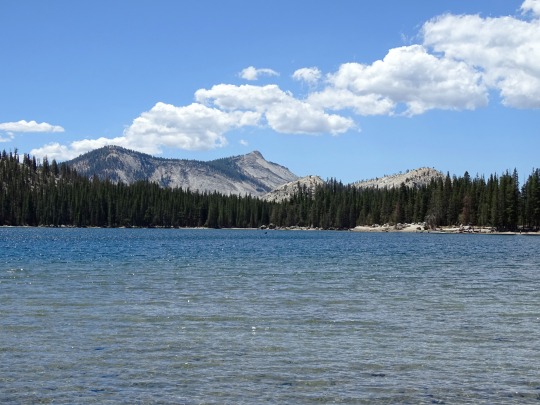
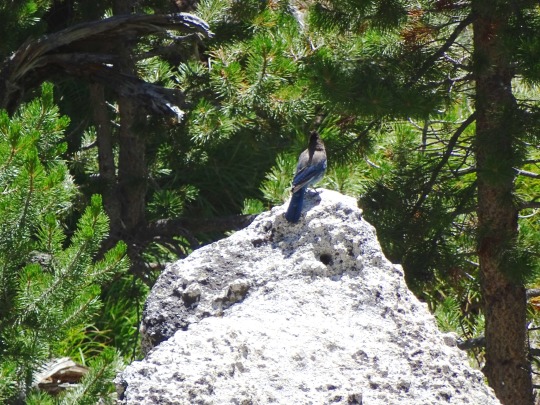
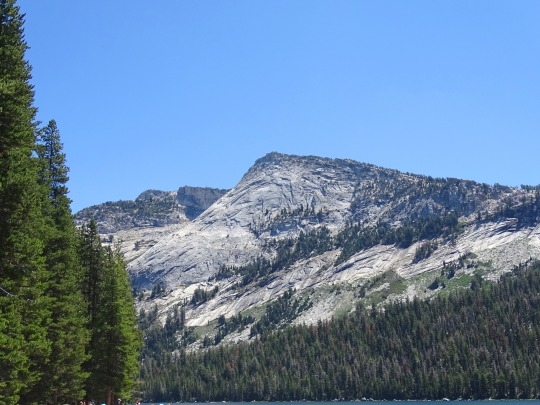
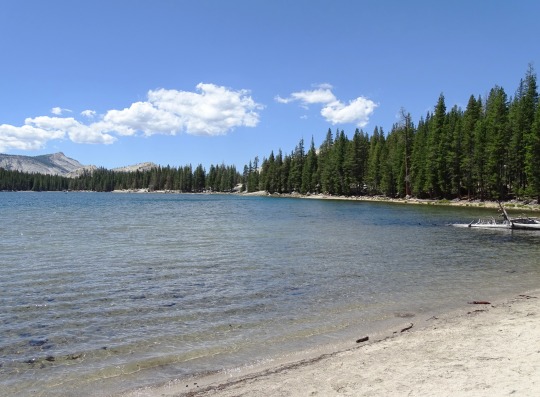


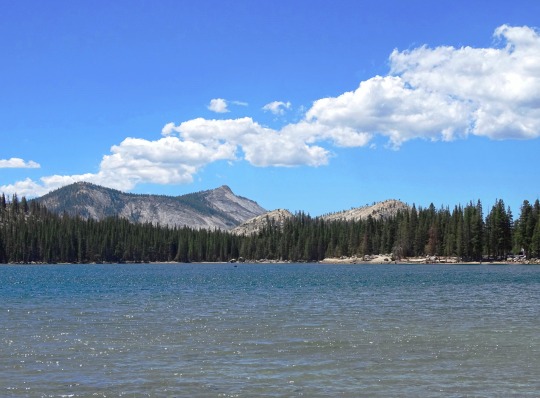
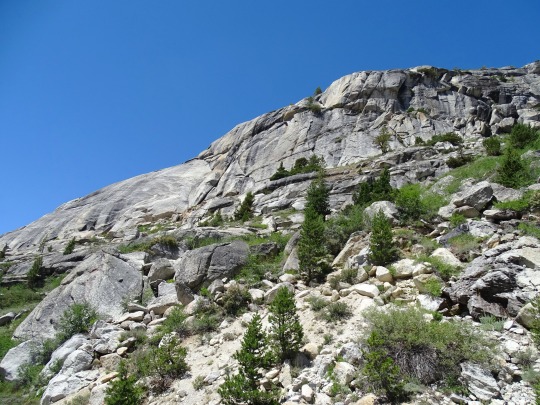


Yosemite National Park, CA (No. 6)
Yosemite National Park is located in the central Sierra Nevada. Three wilderness areas are adjacent to Yosemite: the Ansel Adams Wilderness to the southeast, the Hoover Wilderness to the northeast, and the Emigrant Wilderness to the north.
The 1,189 sq mi (3,080 km2) park contains thousands of lakes and ponds, 1,600 miles (2,600 km) of streams, 800 miles (1,300 km) of hiking trails, and 350 miles (560 km) of roads. Two federally designated Wild and Scenic Rivers, the Merced and the Tuolumne, begin within Yosemite's borders and flow westward through the Sierra foothills into the Central Valley of California.
Almost all of the landforms are cut from the granitic rock of the Sierra Nevada Batholith (a batholith is a large mass of intrusive igneous rock that formed deep below the surface). About five percent of the park's landforms (mostly in its eastern margin near Mount Dana) are metamorphosedvolcanic and sedimentary rocks. These roof pendants once formed the roof over the underlying granitic magma.
Source: Wikipedia
#Yosemite National Park#Sierra Nevada#Mono County#geology#flora#California#summer 2022#tourist attraction#landmark#landscape#countryside#USA#nature#forest#woods#fir#pine#rocks#travel#original photography#vacation#creek#granite#blue jay#bird#Tenaya Lake#lake shore#blue sky#clouds#wildlife
10 notes
·
View notes
Text
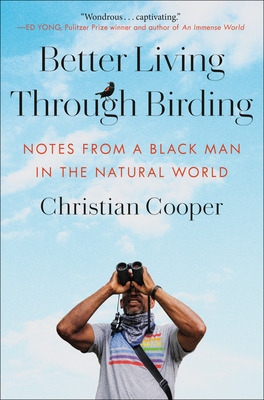
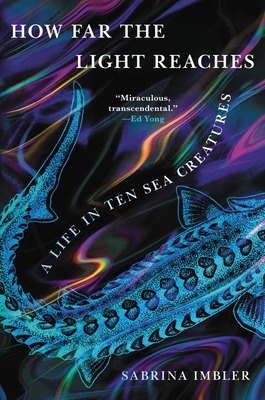

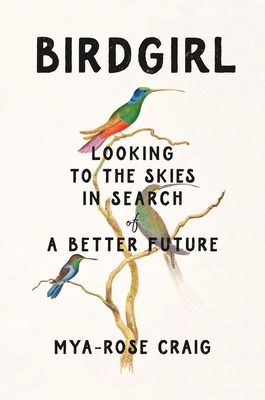
Read-Alike Friday: Better Living Through Birding by Christian Cooper
Better Living Through Birding by Christian Cooper
Christian Cooper is a self-described “Blerd” (Black nerd), an avid comics fan and expert birder who devotes every spring to gazing upon the migratory birds that stop to rest in Central Park, just a subway ride away from where he lives in New York City. While in the park one morning in May 2020, Cooper was engaged in the birdwatching ritual that had been a part of his life since he was ten years old when what might have been a routine encounter with a dog walker exploded age-old racial tensions. Cooper’s viral video of the incident would send shock waves through the nation.
In Better Living Through Birding, Cooper tells the story of his extraordinary life leading up to the now-infamous incident in Central Park and shows how a life spent looking up at the birds prepared him, in the most uncanny of ways, to be a gay, Black man in America today. From sharpened senses that work just as well at a protest as in a park to what a bird like the Common Grackle can teach us about self-acceptance, Better Living Through Birding exults in the pleasures of a life lived in pursuit of the natural world and invites you to discover them yourself.
How Far the Light Reaches by Sabrina Imbler
A queer, mixed race writer working in a largely white, male field, science and conservation journalist Sabrina Imbler has always been drawn to the mystery of life in the sea, and particularly to creatures living in hostile or remote environments. Each essay in their debut collection profiles one such creature: the mother octopus who starves herself while watching over her eggs, the Chinese sturgeon whose migration route has been decimated by pollution and dams, the bizarre Bobbitt worm (named after Lorena), and other uncanny creatures lurking in the deep ocean, far below where the light reaches. Imbler discovers that some of the most radical models of family, community, and care can be found in the sea, from gelatinous chains that are both individual organisms and colonies of clones to deep-sea crabs that have no need for the sun, nourished instead by the chemicals and heat throbbing from the core of the Earth.
Exploring themes of adaptation, survival, sexuality, and care, and weaving the wonders of marine biology with stories of their own family, relationships, and coming of age, How Far the Light Reaches is a book that invites us to envision wilder, grander, and more abundant possibilities for the way we live.
Life Between the Tides by Adam Nicolson
Inside each rockpool, tucked into one of the infinite crevices of the tidal coastline, lies a rippling, silent, unknowable universe. Below the stillness of the surface course different currents of endless motion - the ebb and flow of the tide, the steady forward propulsion of the passage of time, and the tiny lifetimes of its creatures, all of which coalesce into the grand narrative of evolution.
In Life Between the Tides, Adam Nicolson investigates one of the most revelatory habitats on earth. As Nicolson journeys between the tides, both in the pools he builds along the coast of Scotland and through the timeline of scientific discovery, he is accompanied by great thinkers - no one can escape the pull of the sea. We meet Virginia Woolf and her Waves; a young T. S. Eliot peering into his own rockpool in Massachusetts; even Nicolson's father-in-law, a classical scholar who would hunt for amethysts along the shoreline, his mind on Heraclitus and the Hellenists. And, of course, scientists populate the pages; not only their discoveries, but also their doubts and errors, their moments of quiet observation and their thrilling realizations.
It is all within the rockpools, where you can look beyond your own reflection and find the miraculous an inch beneath your nose. "The soul wants to be wet," Heraclitus said in Ephesus twenty-five hundred years ago. This marvelous book demonstrates why it is so.
Birdgirl by Mya-Rose Craig
Meet Mya-Rose – otherwise known as ‘Birdgirl’. Birder, environmentalist, diversity activist. To date she has seen over five thousand different types of bird: half the world’s species.
Every single bird a treasure. Each sighting a small step in her family journey – a collective moment of joy and stillness amidst her mother’s deepening mental health crisis. And each helping her to find her voice.
Since she was young, she has visited every continent to pursue her passion, seeing first-hand the inequality and reckless destruction we are inflicting on our fragile planet. And the simple, mindful act of looking for birds has made her ever-more determined to campaign for all our survival.
This is her story; a journey defined by her love for these extraordinary creatures. Because large or small, brown, patterned or jewelled, there is something about birds that makes us, even for just moments at a time, lift our eyes away from our lives and up to the skies.
#memoir#science#nature#nonfiction#reading recommendations#reading recs#book recommendations#book recs#library books#tbr#tbr pile#to read#booklr#book tumblr#book blog#library blog#readers advisory
12 notes
·
View notes
Text

Giant galactic explosion exposes galaxy pollution in action
Astronomers have produced the first high-resolution map of a massive explosion in a nearby galaxy, providing important clues on how the space between galaxies is polluted with chemical elements.
A team of international researchers studied galaxy NGC 4383, in the nearby Virgo cluster, revealing a gas outflow so large that it would take 20,000 years for light to travel from one side to the other.
The discovery was published today in the journal Monthly Notices of the Royal Astronomical Society.
Lead author Dr Adam Watts, from The University of Western Australia node at the International Centre for Radio Astronomy Research (ICRAR), said the outflow was the result of powerful stellar explosions in the central regions of the galaxy that could eject enormous amounts of hydrogen and heavier elements.
The mass of gas ejected is equivalent to more than 50 million Suns.
“Very little is known about the physics of outflows and their properties because outflows are very hard to detect,” Dr Watts said.
“The ejected gas is quite rich in heavy elements giving us a unique view of the complex process of mixing between hydrogen and metals in the outflowing gas.
“In this particular case, we detected oxygen, nitrogen, sulphur and many other chemical elements.”
Gas outflows are crucial to regulate how fast and for how long galaxies can keep forming stars. The gas ejected by these explosions pollutes the space between stars within a galaxy, and even between galaxies, and can float in the intergalactic medium forever.
The high-resolution map was produced with data from the MAUVE survey, co-led by ICRAR researchers Professors Barbara Catinella and Luca Cortese, who were also co-authors of the study.
The survey used the MUSE Integral Field Spectrograph on the European Southern Observatoryʼs Very Large Telescope, located in northern Chile.
"We designed MAUVE to investigate how physical processes such as gas outflows help stop star formation in galaxies,” Professor Catinella said.
"NGC 4383 was our first target, as we suspected something very interesting was happening, but the data exceeded all our expectations.
“We hope that in the future, MAUVE observations reveal the importance of gas outflows in the local Universe with exquisite detail.”
IMAGE....Galaxy NGC 4383 evolving strangely. Gas is flowing from its core at a rate of over 200 km/s. This mysterious gas eruption has a unique cause: star formation. Credit: ESO/A. Watts et al
2 notes
·
View notes
Text
Nexciya — Endless Path of Memory (Pensaments Sònics)

Whether deliberate or not, the name Nexciya immediately recalls the influential Detroit duo James Stinson and Gerald Donald AKA Drexciya. Any sonic similarities are oblique at best. Even at their most ambient, Drexciya put beats and an aquatic mythology in the foreground. Adam Dove’s work largely eschews the confines of tempo for a sound lusher, more evocative and inward looking. You can hear traces of Drexciya’s oceanic keyboard sounds and imagine their rhythms kicking along over parts of Endless Path of Memory, but Nexciya concentrates on blurring the boundaries between inner and outer worlds. Free from conventional, tempo driven structure, his tracks shimmer and mutate like mercury rolling across unstable topographies.
“My Eyes Looked Dull and Sunken” develops with haunted gravitas. The music seems always on the verge of losing balance, distant echoes of children’s voices and what sounds like a trudge through thick undergrowth playing against pure, elongated keyboard tones that sigh with despair. “Bury it Deep Inside Yourself” uses bass tones that dissipate and regather, a rumbling backdrop that ebbs and flows like an incoming storm heard from beneath thick blanket, which offers neither protection nor comfort. The mood is not entirely dark, however. The glacial arpeggios of “Things Fall Apart” evoke growth rather entropy, as do the samples of birdsong and running water that Dove uses as counterpoint to his motile drones. When does he use recognizable beats on “Tales” and “Replica” they fracture and disintegrate on the former and dissolve into granular quicksand on the latter. It’s as if the tracks have organically freed themselves from structure so to as pursue their freedom to roam, or escape. As a metaphor for our attempts to regiment and shape memory, it is central to Nexciya’s project.
Endless Path of Memory is an elegant and eloquent reflection on the obstinate power of memory and its vital role in shaping our relationship to ourselves and the outside world. Nexciya finds both despair and joy in its persistence and by foregoing conventional structures allows his music to mirror memory’s mercurial nature.
Andrew Forell
#nexciya#endless path of memory#Pensaments Sònics#andrew forell#albumreview#dusted magazine#adam dove#ambient#electronic
2 notes
·
View notes
Text
Make Me Write Tag - Result
The poll* I have made for this tag has ended, and the results are in! I'm going to be giving 36 lines to Obsidian Sapphires
Tagging all those I tagged plus the reblogs:
@emelkae @avrablake @bloodlessheirbyjacques @sleepyowlwrites @thesorcerersapprentice @echoing-sailor @splashinkling @talesofsorrowandofruin @yvesdot @dru-reads-writeblr @forthesanityofstorytellers @another-white-hole
... And the Obsidian Sapphires + general taglists:
@tryingtimi @outpost51 @bigboicol-theflamingcol @manuscriptsatmidnight @guessillcallitart @thebluesthourcommunity @thelaughingstag
*the rehash poll, that is. the original poll had 36 votes as of 24 hours after its release, and when that poll ends, its winner will get lines as per the total of votes.
"Breathe." This was the fourth time Eshani visited these hallowed doors, yet still success remained beyond her. She poured over too many books to just walk away empty-handed.
She shoved her hand into the frame, reciting the spell that would grant her passage. The words ebbed and flowed from her tongue, bringing her magic to the edge.
The temple asked for her magic, as it always did. Pure and unadulterated, it sought the blood of her soul in its truest form. When asked she gave it golden flames, yet golden flames did not suffice.
The door's request thrummed through her veins. "Just let me in." Her blood brimmed with magic. It asked again. "Please let me in." Blue flames burst from the central carving. Eshani staggered backwards but kept her hand firm. The indentations of the doors filled with white light, pouring into each groove into there were none.
Morilast's complete door portrait glowed in full, pulsating with the products of divine magic. Eshani held her breath. The lines flickered with every heartbeat, each beat a beat too long. This had to be it, this had to be it. Her eyes flared with impatience.
One shove of the door... Nothing.
She shoved a second time. "Damn it!" Her voice echoed through the outer chamber.
Why wouldn't the door open? She didn't understand. She read all the tomes, followed all the rituals, and doors stood adamant still.
"What more will it take from me get in?" She leaned her forehead against the door, before taking a step back to get a better view.
The portrait pulsated still, though its vivacity fading. Was it on account of foreign lineage that it refused her entry, or something else entirely?
She glanced at the depths below the bridge, where the shadows danced and masked their secrets. What laid below she did not know. She sent a golden flame along the walls, where it sought purchase in the cold unknown.
It faded. The flame slipped through the wall the way an assassin would find a gap. She tried again. In no uncertain terms, it could be either a cavern or a crevice.
There would only be one way to find out.
-
"I want you to have this." Her mother said, opening a box made of polished sandstone.
Alycja stood in the queue, holding her mother's syrchel. It felt smooth to the touch, a comforting weight to ground her restless fingers.
Up ahead, the other candidates performed their rituals. Some painted their runes of blessing and fortune with an artist's fluency, others with a wavering stutter of hand.
From the others bled fire, wind and light, conjuring products of their hard-earned control.
She witnessed the wind play the fiddle, and a crackling lightning show above the masses. The awe on her face dissipated with the melting of an ice statue back into a tray of water.
The meshai called her up.
7 notes
·
View notes
Text
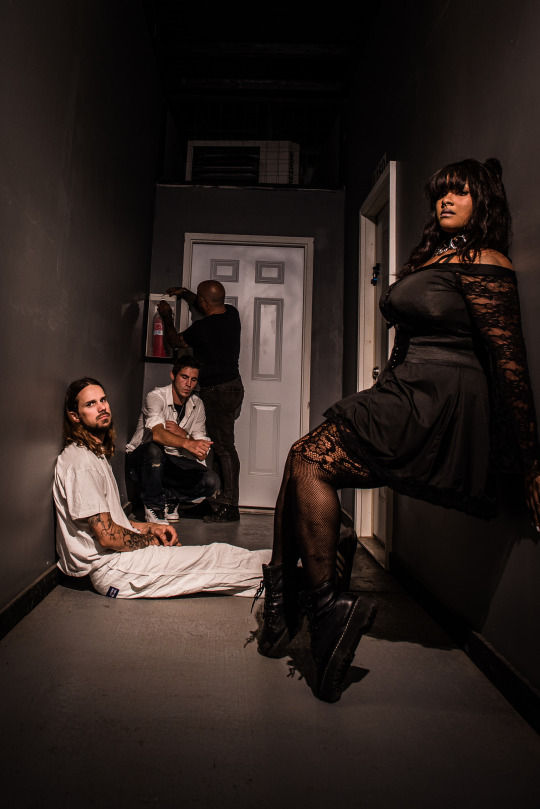

goofy goobers these guys
photo credit: jessica lynn
FYI: former members are pictured that are no longer members of central flow
#central flow#central flow adam#central flow roxanne#witchblr#goth girl#goth gf#alt black girls#alternative rock#alternative#grunge#grungy aesthetic#black goth#goth fashion#vampire aethetic#kinktober
3 notes
·
View notes
Text
government schools
Robert J. Borer
Aug 30
READ IN APP
Dear Friends,
We’re going to be talking about what’s going on in the Burwell Public School system in a moment, but before we do, I’d like to say a word about government schools in general.
Quoting from the Preamble and Article 1-4 of our State Constitution:
Preamble.
We, the people, grateful to Almighty God for our freedom, do ordain and establish the following declaration of rights and frame of government…
Article I-4.
All persons have a natural and indefeasible right to worship Almighty God according to the dictates of their own consciences. No person shall be compelled to attend, erect or support any place of worship against his consent, and no preference shall be given by law to any religious society, nor shall any interference with the rights of conscience be permitted. … Religion, morality, and knowledge, however, being essential to good government, it shall be the duty of the Legislature to pass suitable laws to protect every religious denomination in the peaceable enjoyment of its own mode of public worship, and to encourage schools and the means of instruction.
The first thing I want you to notice (from the Preamble) is that our freedom comes from God, not government. Therefore government can’t take your freedom away, unless YOU let them. That’s right—YOU have to let them.
If you want to be a citizen of a free state, you have a responsibility to help keep that state free, first by governing yourself under God, and second, by holding your government accountable, and by that, I mean accountable to the extent that, if necessary, you will assist in altering or abolishing that government, per the Declaration.
Our Founders did their best to provide checks and balances within government, but government still managed to corrupt itself. Checks and balances are only as good as the men/women who are supposed to be serving as those “checks and balances.” Our Founders knew that. That’s why they said We the People are the ultimate check and balance when they wrote the Declaration: “whenever any Form of Government becomes destructive of these ends [i.e., securing our rights], it is the Right of the People to alter or to abolish it, and to institute new Government.”
Barring some future military/militia intervention (which I expect is coming), we can expect the men and women being s-elected (through our fake elections) to serve as checks and balances to be forever spineless to do what’s right.
“Religion, morality, and knowledge, however, being essential to good government….schools…”
Schools are predicated on the truth that religion, morality and knowledge are essential to good government. Said another way, “[true] Religion and good morals are the only solid foundation of public liberty and happiness.” (Samuel Adams)
Schools are supposed to to provide our youth with the kind of learning necessary to sustain Freedom/Liberty.
But that’s not what’s happening in our government schools today. The opposite is happening. The education of our youth has been hijacked by subversive forces. They bore students and brainwash them with immorality, idolatry and godlessness. They largely destroy incentive to learn.
The general public should not be paying for this pseudo-religious nonsense, nor for the associated sports entertainment.
When our Legislature sold the public on centralizing control of public education across our State back in 1972 (see here) they made it easy for subversives to destroy our state and country.
Schools should teach three subjects and only three: reading, ‘riting and ‘rithmetic. All other learning, beyond the moral influence of parents, flows from those three subjects.
If you want to learn how to truly educate your child, Dr. Art Robinson presents a brilliant model in his talk here:
Dr Art Robinson Explains the Robinson Curriculum
So what’s going on in Burwell??
This is what’s going on—social engineering and the moral corruption of our youth:
This information comes by way of Emily Swett, whose name I have permission to use.
Emily is standing up, fighting back and speaking out. I applaud her. You should too. Better yet, you should join her in her fight.
Emily has been to the local paper, and met with the superintendent and the teacher responsible for perverting our youth (my words) with the above material.
I’ll let you contact her to find out how those conversations went.
God bless you, Emily!! Thank you and keep up the great work.
The last thing I’ll share is this comment from John Roby in response to this post:
Aug 28
He made a gesture. He no doubt KNEW his bill would be DOA and he can then turn around and blame 'the process' for it. Lather, rinse, repeat. It's the same kind of kabuki theater we see at the national level with the GOP holding hearings and investigations and writing strongly worded letters and yet nothing real ever happens. You called him out on it and now he's upset. Boo hoo.
So LB228 says you have to show up, show photo ID and vote in person. To what end when your ballot is fed into a machine and it's a total mystery what happens after that? By the SoS (and other 'officials') repeated admission, We The People have no right to see the results of what those machines do and we're supposed to take it on faith that the multiple questions that have been raised about their integrity have been addressed. The laws are set up to thwart transparency, not provide it. And again, the people in charge smugly say, 'Well, we're just following the law.' There's what's legal and there's what's right. The two do not necessarily match.
We've had two elections stolen from us and showing up in person and voting with an ID are meaningless gestures until the these machines are removed from the equation. Sounds to me like Erdman is bought and paid for as well. Just another Uniparty hack.
That’s it.
God bless,
Robert J. Borer
5 notes
·
View notes
Photo


A GREEK GOLD OAK WREATH
LATE CLASSICAL TO EARLY HELLENISTIC PERIOD, CIRCA 4TH-3RD CENTURY B.C.
17 ½ in. (44.4 cm.) wide.
In ancient Greece, foliate wreaths fashioned from gold, mimicking natural forms such as laurel, myrtle, olive, ivy, and, as here, oak, were given as prizes, worn in processions or in the symposia, dedicated at sanctuaries and buried with the dead. Sanctuary dedications are mentioned in temple treasury lists from as early as the 5th century B.C., but surviving examples are few prior to the 4th century B.C. The meaning of the different plant species employed for these wreaths is uncertain, but in the case of oak, there is at least a clear association with Zeus.
Elaborate gold oak wreaths have been found in the Royal tombs at Vergina, including one placed within the gold larnax thought to have enclosed the remains of Philip II, father of Alexander the Great, and another found in situ on the shoulders of a silver funerary hydria in the nearby so-called “Prince’s Tomb”. The large amount of gold that flowed into Macedonia and Greece following Alexander’s eastern campaigns led to a dramatic increase in jewelry production, and high quality works were now accessible to wider strata of society. As P. Adams-Veleni notes. “Indeed, rather than a privilege of the gods, such wreaths were common among wealthy mortals, whom they accompanied after death to the eternal symposium in the beyond.”
Oak wreaths dated to the later 4th century B.C. have been found throughout the Hellenistic world, east and west. Wreaths are also to be found on depictions of victorious athletes, including statues, coins and gems, although depending on the scale of the image, it is not always possible to identify the type of wreath intended.
The present example is composed of cut-out sheet-gold leaves, 104 in total, each on spiral-twisted wire and joined to ten stems radiating outward from a central ring. Four acorns are preserved on four of the stems.
#A GREEK GOLD OAK WREATH#LATE CLASSICAL TO EARLY HELLENISTIC PERIOD CIRCA 4TH-3RD CENTURY B.C.#gold#gold jewelry#ancient gold jewelry#ancient artifacts#history#history news#ancient history#ancient culture#ancient civilizations#ancient greece#greek history#greek gods#zeus
27 notes
·
View notes
Text
KIM PETRAS - "BRRR"
youtube
With Leah's help, we turn our attention to Kim Petras.
[4.94]
Wayne Weizhen Zhang: When she's not being a trailblazer for the world's worst song (can you imagine the hypothetical TSJ blurbs for "Unholy"?), or receiving ire for Feed the Beast (which I secretly adore for how plodding and simple its pop vision is), it turns out Kim Petras remembers how to write a fun hook. "Brrrr" is camp embodied, far from transgressive, but delightful in its queer, whirring onomatopoeia.
[7]
Jacob Sujin Kuppermann: I lived in queer co-ops from 2018 to 2020 so I've spent a non-negligible amount of time trying to appreciate Kim Petras. In that time -- and in the years following -- I've gotten precisely nothing out of this endeavor. The arc of Kim Petras's career is unintelligible to me, a grand chronicle in a language I can't read. If anything, her journey from "fake pop star my friends swear by" to "maybe real pop star that my friends don't talk about" is one of attenuation -- whatever star-like qualities could be discerned in her strongest early appearances ("I Don't Want It At All", the SOPHIE one, the Charli XCX one) is absent entirely on "Brrr" -- even the campy thrill of "Coconuts" and her vampy turn on "Unholy" is hard to discern here. The Kim Petras of "Brrr" is a rictus grin of forced slay, a joyless demonstration of force of will wrapping in third-generation Yeezus pop-industrial beats.
[2]
Hannah Jocelyn: Alright, who gave Rami Yacoub the SOPHIE sample pack from Splice? Forget hyperpop; this is hypopop, devoid of any sort of invention or interesting production that once defined the genre. This is what CRASH sounds like to people that hate CRASH; this is what 10,000 Gecs sounds like to people who hate that record. Petras has no distinctive identity here; I don't even hear a woo-ahh; she even says "you don't know me all too well" and I agree.
[3]
Oliver Maier: Don't have any idea what "if you think you're so cold, brr" is supposed to mean and producers ILYA and Rami evidently got overexcited with the SOPHIE sample pack. Improbably, it mostly gels. Kim Petras is probably evil but her performance here is seismic.
[7]
Will Adams: I'll give her this: I can't remember the last time a pop song's central hook landed with such a tremendous thud as "IF YOU THINK YOU'RE SO COLD. BURRRRRR."
[3]
Brad Shoup: That hook -- ouch. It would kill in the writers' room of an industry drama. The pre-chorus -- where she retreats for a second just to explode -- breaks up the squelch just fine. This looms more than it bangs, which feels right for a song I thought said if you like it baby, haunt a lobby.
[4]
Nortey Dowuona: The bass drum in this is novel in that nothing is actually done upon closer inspection. There's a lot done with the synths, especially with the quick zaps of melodies that bubble up during the second pre-chorus, the quick bubbly riff at the tail end of the chorus, and the light motif at the beginning that is so thin it disappears upon quicker inspection. These all sound delightful, but listen to the bass drums, stripped of their ability to carry the baseline or shift the rhythm of the song. They could've been replaced with literally any kind of drum sound and it would function the same. It's just thrown in there since capital-p Pop music has absorbed rap production techniques wholesale without paying attention to how it's used. This could be coming from say, house or bass music, but nobody who made bass music would program bass drums this way, right?
[4]
Micha Cavaseno: Extremely funny to hear the punchline flow still utilized as a hook in pop in 2023, because all the parts that feel very much like the past aren't the obviously retro-touches. The robotic elements of the production going for tech-electro knuckle-drag are nice and sleek, a classic vehicle if ever there was one even 40 years after this stuff was a trope. But the brrr, the filter on the backing vocals, the devil-may-care attitude gone world weary all meanwhile feels like the clichés of a decade ago that don't quite feel ready for nostalgia. I guess there's something to be said about a record that feels beholden to its dated elements being so "cold", but not everything cold is super inviting.
[3]
Will Rivitz: As cold as a fridge set a degree or two above the FDA standard, and as enthralling as a piece of iceberg lettuce dessicated after a week left inside.
[4]
Aaron Bergstrom: *Kenneth Parcell voice* "What's cocaine like?"
[2]
Alfred Soto: What sucks is that this song doesn't suck. My students could've commissioned the vocal from several AI resources, the electronics don't grate. What sucks is that the hook sucks. "Did she really sing, 'If you think you're so cold, brr'?!" On first listen it sounded like "If you think you're so-ber." Guess which I prefer.
[5]
Taylor Alatorre: Kim Petras released two albums in 2023 and I honestly didn't remember that this was on one of them. It provides a glimpse into one potential Bad Ending to her still-promising career: getting so hyped off the Sam Smith streaming numbers that she loses the ability to discriminate between "bad bitch energy" and movie trailer music.
[4]
Harlan Talib Ockey: After the mediocre "Unholy" and laughable "If Jesus Was a Rockstar", "Brrr" actually sounded... good? Petras' delivery in the chorus is like getting smashed with a warhammer. The production is utterly headache-inducing (compliment). However, the verses feel less and less substantial on repeat listens, and it never builds to a peak higher than its first chorus. This is a solid album track, not a course-correcting lead single.
[5]
Katherine St Asaph: Feed the Beast was named for its raison d'etre: source enough pop songs to hit your label KPIs, then spray and pray and slay. What's less remarked upon is how many of these songs come from writers and producers who really haven't released much lately: Sarah Hudson, Ali Tamposi, Ester Dean (!!), and "Brr" producer Ilya. (Unfortunately, Dr. Luke has released plenty lately.) Also involved in "Brr": a session guitarist for The Weeknd and a guy who goes by the Instagram handle @industryplant; this ain't the A-list. One wonders how long this material was sitting in the pantry before it fed the beast. Specifically, "Brr" sounds like a demo written for Thank U, Next (in which Ilya was heavily involved), then rejected for sounding less sexy than sad. Whatever the song's provenance, Petras has it now, and she executes the motions of flirtation with bleak competence. And I don't hate it! The record's already cynical as fuck; why not put that subtextual cynicism into the music?
[7]
Ian Mathers: The sound of not just calling someone's bluff, but relishing in it. There's no winning; either way, you're going to prove her point. Rarely does a discussion of temperature sound so purely withering.
[9]
Leah Isobel: SOPHIE's absence hovers over me a lot, which is dumb, because we never met. I am just a fan; I saw SOPHIE live exactly once, about six months after I started hormones. I can picture myself that night vividly -- in a thrifted jersey dress, cut low, that I had to duct tape to my tits so I wouldn't break the law; in impractical high heels that another girl, who I don't talk to anymore and who probably didn't really like me, gave to me; my eyeliner as sharp as I could draw it; my hair tangled and messy but long, the way I liked, the way I'd dreamed about for years. I remember that night and I remember the relief, the stupid fucking unbelievable unbearable incomprehensible relief of that whole year, how I had denied and ignored myself for so long that just being who I wanted 2 be was incredible enough to set my head spinning.
That year, the girl who doesn't talk to me anymore got into Kim Petras. I treated her work like a guilty pleasure; "Hills" was spacey and fun and exuberant, "Hillside Boys" was tender and sweet and exuberant, "All The Time" was bouncy and bright and exuberant. But all that joy was tempered by the knowledge of Dr. Luke's fucking greasy hands gripping her recording contract. His presence indicated something that I didn't understand yet, and maybe still don't, though it makes sense intellectually: that if you want to be a part of society, the recognition you feel within yourself doesn't actually matter that much if everyone around you hates you for it; that people are ultimately social, and being forced to choose between external ostracization (with the threat of physical death by violence) and internal spiritual death (with the threat of physical death by isolation) is one of the cruelest things to do to a person, and yet this is the choice I was given, that #girlslikeus are all given. No matter what I choose, there will be genuinely evil soulless fuckers who look at me and say that it was really my fault to begin with because my presence -- just my existence in the world -- is proof of moral, social, civilization-wide decay. Cisgender women get to talk about their innocence as if it's a birthright. Transgender women are not given any innocence to begin with. Kim was put in front of the media at sixteen years old to explain her decision to get bottom surgery; it makes me feel crazy to watch those interviews, to know that what everyone is actually talking about is her body. No matter how ostensibly supportive those interview segments were, no matter what the intent, the knock-on effect was to make her teenage body a matter of public record, to take away her privacy and dignity because it's just so interesting that trans girls exist and, please, tell us more about your genitals! I see the neon-bright straight line from the invasive, violating, violent "curious" "empathetic" gaze in these interviews to the music Kim would go on to make, in which the fact of her body hovers on the edges of her songs, freighting them with meaning, making their frivolity feel manic and fearful and rebellious and unbelievably significant.
Jules Giles-Peterson describes the opening line of "Hillside Boys" -- "My silhouette is in the frame of your shades again" -- as evidence of her desire just to be seen, linking the heterosexual gaze of the individual man and the patriarchal gaze of the pop industry together. Her whole perspective on herself is compromised by the knowledge that she has to constantly prove her worth to other people and to society at large; there is never, ever a moment of rest. But that song held up the capacity for feeling as proof that things could change someday. "It's over in your Range Rover... You look so pretty when you're breaking me, yeah" mourned the loss but rejoiced in the ability to feel it. But when "Brrr" revisits that Range Rover, it's to remove all sense of warmth, desire, or real emotion from the image: "Turn the heat up in your Rover Why don't you take it out on me?/ If you think you're so cold, brrr." "Brrr" leaves absolutely no space in its tense, cold atmosphere for Kim to express a desire that feels authentic and real; it is about embodying what other people want from you so thoroughly that you have gone numb to what it is that you want. In Kim's work, being a woman and being a pop star are the same thing; the gaze is constant and inescapable. There is no interiority anymore. The demands of disclosure and confession and surveillance are too great. In the background, faux-SOPHIE wubs and schwacks and clangs rattle like ghosts, banging on the wall between death and life, between what should be -- what was promised -- and what actually is. More than anything, in "Brrr" I hear a grief so wide it could -- and should -- swallow her whole. SOPHIE is gone. Kim remains. But in our broken promise of a world, where her body -- my body -- is public property that politicians and lovers and friends and music producers can dispose of at will, what is there left to take joy in? This is the truth: being trans is wonderful, and everyone around me sees it as terrible. Transitioning saved my life, and everyone around me thinks that I died. I have never been this happy; I have never been this desolate. I have never loved so deeply. I have never felt loss this acutely. "Brrr" is purely evil in its emotional perspective, in what it says about the world we live in. And it is also the most honest song ever made.
[10]
[Read, comment and vote on The Singles Jukebox ]
2 notes
·
View notes
Text
LAWHUN MAHFUZ (The Supreme Preserved Tablet): Part 3
The Tablet of Effacement and Confirmation is the tablet on which beings are inscribed and then removed or effaced according to their origins in, or the dictates of, the Supreme Preserved Tablet. Therefore, it displays continuous change. The Tablet of Effacement and Confirmation constitutes the essence of time. Time, a mighty river that flows through existence, has its essence in the Divine Power’s inscription of beings and in the ink It uses. Only God knows the Unseen.
The scholars of Sufism have usually viewed the Supreme Preserved Tablet as the start, origin, and central point of the sphere of existence and as the title of what they call “the Universal, Speaking Soul,” which was created after the Most Exalted Pen. It is the first center of the identification of all of creation on the horizon of Knowledge by the Knowledge Itself. It is a Divine light which was manifested in the same relationship with the Universal Intellect as Eve had with Adam—this is such an all-encompassing Divine light that all the worlds are but an extended shadow of this light, dependent on Divine Power; all of the Divine religious laws are an illuminating ray of it issued from Divine Speech, and the Law Prophet Muhammad, upon him be the most perfect blessings, brought is the continuous radiance of it. These approaches of Sufi scholars mark some depths of the Supreme Preserved Tablet.
It has also been called the Tablet of Light on account of its relation to Divine Unity and absolute Glory, and the Tablet of Divinity due to its being the first mirror to Divine Being’s Attributes of Perfection and reflecting Divine mysteries; it is known as the Tablet of Judgment owing to its being the origin of Divine orders and prohibitions, and the Tablet of Wisdom because of its being a source from which gifts and blessings pour into hearts and spirits. Each of these designations marks the growth or flourishing of a different mystery of Divine Lordship. Since everything depends on and ends in it, it manifests Divine Unity. God’s Attributes of Perfection rise in it and surround all material and immaterial worlds.
Hearts revive through the lights that emanate from it and become its mirrors. Spirits are awakened by means of the rays that diffuse from it and humans tend to worship its Owner. It is due to this last aspect that the Sufis have called it the Tablet of Devoted Servanthood and have stressed that Divine purposes and demands are intertwined there. The dignity of belief in Divine Unity, sincere devotion or servanthood, the truth of submission to God and perfect reliance on Him, the feeling of resignation to His decrees and judgments, and the considerations of fear and awe are the fruits of this horizon. All of these have been regarded as sweet water that gushes forth from this depth.
It cannot be said that all these meanings attributed by some Sufis to the Supreme Preserved Tablet have been derived from the Qur’an or the accurately related Prophetic Traditions. However, no one can object to the fact that the consciences that have turned to Him completely with their mental faculties and profound hearts have been honored with certain favors and gifts. Thousands of people have so far been favored with so many gifts and honored with exceptional heavenly repasts by means of their turning to Him completely and concentrating on Him. Provided they are not incompatible with the spirit of the Religion, it cannot be harmful to accept such considerations and interpretations as special gifts and favors that have been sent to them.
Some Sufis have regarded the tablets (meanings) in question, which seem to be unfolding aspects of the truth of the Supreme Preserved Tablet, as the Tablet of Moses or the Ten Commandments. This approach may be acceptable if it refers to a particular aspect of the universal truth of the Manifest Record; otherwise it restricts a vast, universal truth to a single people. The truth of the Supreme Preserved Tablet is the blessed title of an essential truth which embraces all times and places through eternity and reflects its own color and design on everything. For this reason, every sort of restriction is incompatible with its all-encompassing nature.
Our Lord, take us not to task if we forget or make mistakes! Do not disgrace us either in this world or in the Hereafter! Bestow on us favors manifest and hidden, and make our souls contented with You and “reunion” with You, resigned to whatever You judge for us and satisfied with Your offerings; bestow blessing and peace on the most honorable of Your creation, our master Muhammad, and on his pure Family and excellent Companions.
#islam#muslim#allah#god#revert#convert#quran#ayat#religion#reminder#help#hijab#dua#salah#pray#prayer#muslimah#prophet#Muhammad#welcome to islam#how to convert islam#new muslim#new revert#new convert#convert help#revert help#islam help#muslim help
2 notes
·
View notes